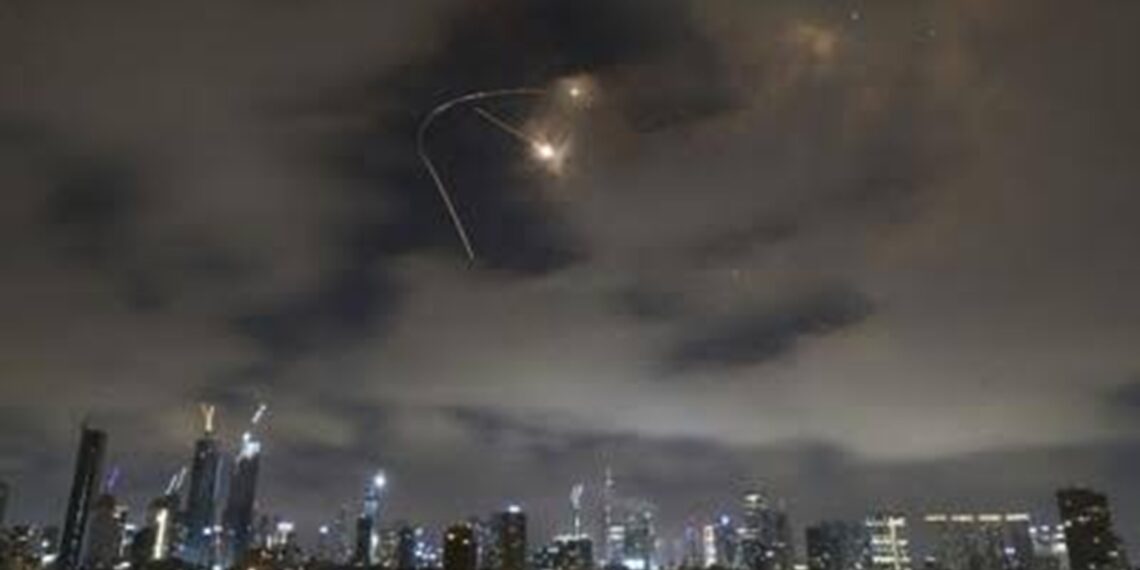The United States launched airstrikes on three key nuclear sites in Iran early Sunday, deepening its involvement in Israel’s ongoing military campaign against Tehran.
The strikes, which targeted the Fordo, Isfahan, and Natanz facilities, were described by U.S. President Donald Trump as a decisive move to obliterate Iran’s nuclear infrastructure.
In a televised address, Trump announced that Iran’s nuclear facilities were “completely and fully obliterated,” although independent verification of the damage was unavailable.
The strikes, executed without congressional authorization, mark a significant escalation in the nine-day conflict between Israel and Iran.
Trump warned Tehran of further military action if it retaliated against U.S. forces, stating, “There will either be peace or there will be tragedy for Iran.”
Iran’s Atomic Energy Organization confirmed the attacks but asserted that its nuclear activities would continue uninterrupted.
It reported no radioactive contamination or danger to nearby residents. Iranian officials maintained that their nuclear program remains peaceful, a position supported by U.S. intelligence assessments that Tehran is not actively pursuing a nuclear weapon.
However, Trump and Israeli leaders have insisted that Iran poses an imminent threat due to its nuclear capabilities.
The U.S. involvement follows a week of Israeli strikes aimed at dismantling Iran’s air defenses and missile systems while crippling its nuclear program.
American stealth bombers and bunker-buster bombs—exclusive to the U.S. military—were reportedly key to breaching the fortified underground sites.
Trump confirmed the strikes in a series of social media posts, declaring the operation a “historic moment for the United States of America, Israel, and the world.”
He expressed hope that Iran would now agree to end hostilities, but Iranian officials have warned of severe consequences for U.S. involvement.
Supreme Leader Ayatollah Ali Khamenei called the strikes a grave provocation, while Foreign Ministry spokesperson Esmail Baghaei described them as a prelude to “all-out war in the region.”
Israeli Prime Minister Benjamin Netanyahu praised Trump’s decision, calling it a bold and transformative move.
In a video address, Netanyahu said, “The United States has done what no other country could do. This will change history.”
The strikes have drawn international condemnation, with UN Secretary-General Antonio Guterres expressing alarm over the potential for a broader conflict.
“The risk of catastrophic consequences for civilians, the region, and the world is growing,” Guterres warned.
The operation’s timing has raised questions about its broader implications.
Trump, who campaigned on keeping the U.S. out of costly foreign conflicts, faced criticism from both allies and opponents.
Critics argue the decision contradicts his earlier pledges to avoid “endless wars,” while others view it as a calculated move to strengthen his foreign policy credentials.
Iran has vowed to respond decisively, and its allies in the region, including Houthi rebels in Yemen, have threatened to resume attacks on U.S. assets.
ALSO READ: Nagaland Police nab government employee in Rs 1.86 crore burglary spree
Meanwhile, Israeli forces are bracing for a protracted conflict, with military officials predicting a lengthy campaign.
The escalation comes amid heightened tensions over the U.S.’s withdrawal from the 2015 Iran nuclear deal, which limited Tehran’s uranium enrichment in exchange for sanctions relief.
Trump abandoned the agreement in 2018, calling it the “worst deal ever.”
Efforts to renegotiate have since faltered, leaving diplomatic solutions increasingly out of reach.















